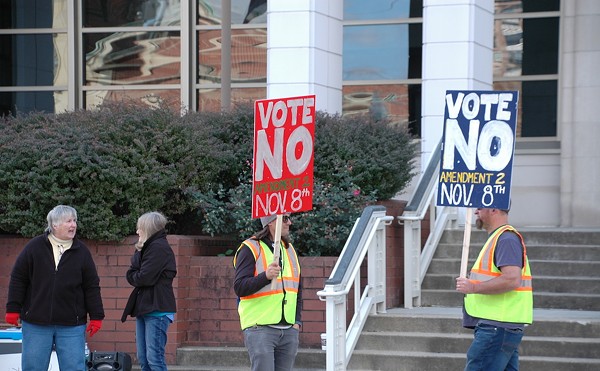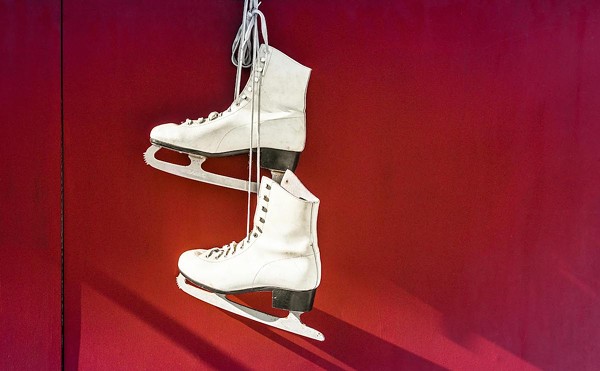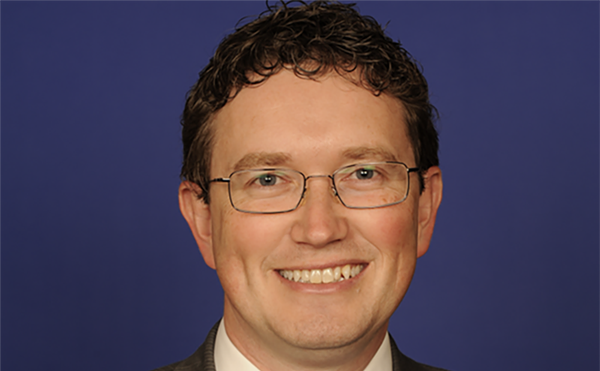LAS VEGAS — As we walked in to the Convention Center at the Riviera, the stale casino smell that permeates Las Vegas reeked of a place 20 years overdue for a makeover. Ironic, in a sense, but almost a fitting setting for the championship of a sport that’s been around for several decades but hasn’t yet hit the mainstream.
Just as the Riviera is off the beaten path of Vegas’ main strip, the Air Hockey World Championships have been a relative side note to the numerous competitions this city regularly hosts.
My friend Jeff Huisman and I started playing the sport five months ago, after my domination of him in friendly games of Pop-A-Shot led us to take our competitive natures to the frictionless air hockey tables.
We enjoyed the game and jokingly wondered if professional air hockey existed. It did, so we thought, "Why not train ourselves to compete at the sport’s highest level?"
We began regularly training at Dave & Buster’s in Tri-County, with the pinnacle of our practice sessions coming Jan. 21 when we played 28 games against each other because they were half price that day. This was after playing 29 combined games during the previous two days.
Our dedication proved to be too much for Jeff’s body, as he aggravated a previously injured elbow and wrist during that week. He suffered compression to his median and ulnar nerves in his air hockey hand, requiring surgery. Less than two months from the championships, our plans for professional-level competition were threatened.
Jeff couldn’t touch his air hockey mallet until he received clearance from his doctor, but he got the go-ahead two days before the World Championships.
We arrived in Las Vegas on March 13, and after a few hours of getting acclimated to the lights and sounds of the hotel’s money-eating machines we checked out the Riviera’s competition area. Cautiously optimistic, we registered for the tournament and were quickly greeted by Michael Rosen, commissioner of Major League Air Hockey and president of the USAA. He’d previously e-mailed us regarding our CityBeat sports blog training updates and was excited to finally meet us, and we scheduled breakfast for the next day.
[See Danny Cross' interview with Michael Rosen here.]
Jeff and I skipped that night’s doubles competition and got away from the slots early in order to stay focused on Saturday’s matches. We went to breakfast with Rosen, who remains an active player and is ranked No. 1 in New York. He spoke candidly of the sport that he’s trying to grow.
In a day and age when nearly anything can be made a marketable competition — competitive eating, John Madden video game football and Texas Hold-Em — there seems to be room for a table sport such as air hockey. If table tennis can be an Olympic sport or pocket billiards and bowling can get air time on ESPN, why not air hockey?
The tournament kicked off with an opening ceremony, which streamed live via webcam at the USAA Web site (airhockeyworld.com). Jeff and I learned our seedings in the 64-person bracket.
As No. 56, Jeff drew No. 9 Dave Parmley, the third-ranked player in California. I got the 54th seed, which matched me up with No. 11 Mark Robbins, a 57-year-old left-handed veteran with two national titles and more than 30 top 10 finishes.
Jeff and I quickly learned that we were competing on a whole new level. This wasn’t going to the local Dave & Buster’s after-work scene, playing puck with co-workers — this was the elite level of air hockey play. Jeff managed to win one game in his set against Parmley, which later proved to be quite a feat in itself. I got blanked by the crafty veteran Robbins, four matches to zero.
All of the top seeds advanced out of the first round without being upset by a lower-ranked player, proving that air hockey relies on skill and talent over brute force or luck. Tourney organizers kept the event on track and ran it as smoothly as any other competition I’ve taken part in.
Disappointed in defeat, Jeff and I thanked our experienced opponents for the thrashings. But in both cases the seasoned players gave us advice on improving our play.
In most competitive sports, the winners tend to keep their tips and techniques to themselves. But it’s apparent that these professionals and masters were willing to help a fellow player out for the betterment of the sport.
Jeff and I moved onto the consolation bracket, where we were both blanked 4-0, officially dropping us out of the main draw and sending us to the spin-off brackets to determine our exact rank between 49th and 64th place. Maybe we thought the matches would’ve been closer or we would’ve hung out in the main bracket longer, but it became clear that beginners couldn’t hang with the elite.
We fared a little better in the spinoff bracket, but not much. Jeff managed to finish his day with two wins and six losses for 59th place overall. I was again beaten in consecutive matches to finish 61st.
[That's Jeff at right in the photo above playing Jay Marshall.]
The Main Event took place the following day, with Ehab Shoukry defeating No. 1 seed Davis Lee Huynh to capture the championship after a come-from-behind win over seven-time world champion Danny Hynes.
The World Air Hockey Championships completely exceeded our expectations. Having seen the documentary The King of Kong, I assumed this competition might be full of Billy Mitchell-type characters protecting a tight-knit community of renowned players. This tournament couldn’t have been more different: The players play for the love of the sport. They train, practice and mentor each other along the way.
I now understand why those involved are so passionate about this sport. I found something I didn’t expect while playing this game, making me want to continue my journey to becoming a better player.
Our next destination is U.S. Nationals in July 2009. We’ll keep you informed via the CityBeat sports blog.





